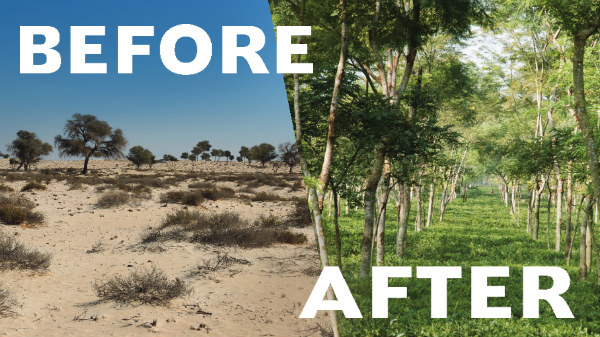
Teatulia's organic tea garden began as social enterprise designed to create jobs in a remote and impoverished region of Bangladesh—we wanted to do something that would make a difference for the land and its people. Our goal was to not just be sustainable, but regenerative.
Our main objective of the garden was to provide jobs to the people in the poorest region of one of the poorest countries in the world. We wanted to differentiate ourselves from the typical working conditions of conventional tea gardens. We've accomplished this through our garden initiatives and our unique teas.
We created a co-op to teach organic farming to our garden workers, providing families with food and a way to strengthen their socio-economic condition by selling crops to local village markets and city supermarkets.
We strive to alleviate adult poverty by providing access to literacy programs. Through literacy training, students are able to gain the skills necessary to advance to secondary, undergraduate, or vocational training that will make them more employable in the future
Our cattle-lending program is based on an innovative approach— lending its co-op members cows instead of cash. Co-op members are lent a dairy cow that can be paid back by selling its milk and dung. Members are required to sell one liter of milk plus 20 to 40 pounds of dung per day, while keeping the rest for their personal use.
Our garden is Fair Trade, Rainforest Alliance, and B Coop certified. Our collection of teas are 100% organic and single garden direct to ensure the purest taste. We created our revolutionary tea eco-canisters to not just look good…but to do good. Our retail packaging alone saved more than 10,000 tons of waste from landfill last year. Every decision we make is one we hope will reduce our global footprint and inspire others to do the same.
What started as barren, virgin land is now 3,000 acres (and growing!) of organic tea gardens and farmland. After years of organic cultivation, we're now seeing a diverse and thriving ecosystem teeming with a variety of once endangered plant and animal species.
The co-op's education programs have improved literacy rates by 50% or more and graduated more than 370 of its members. Dairy farming has increased employment by 450% and co-op members' incomes by 300%.
The garden provides employment for up to 750 people. And the cooperative, 1200 strong, is set to keep growing without limits. Increased livelihood allows the people to enjoy better nutrition, housing, security and many other resources, which ensure better health in every sense.






